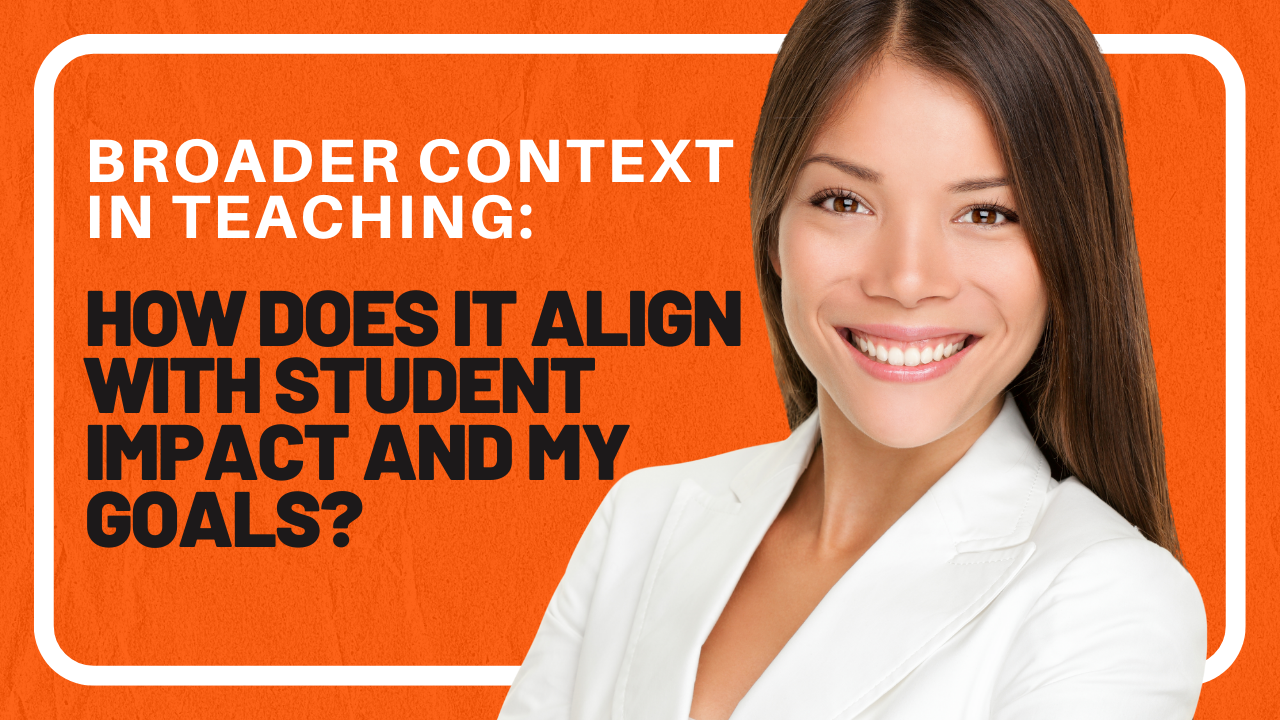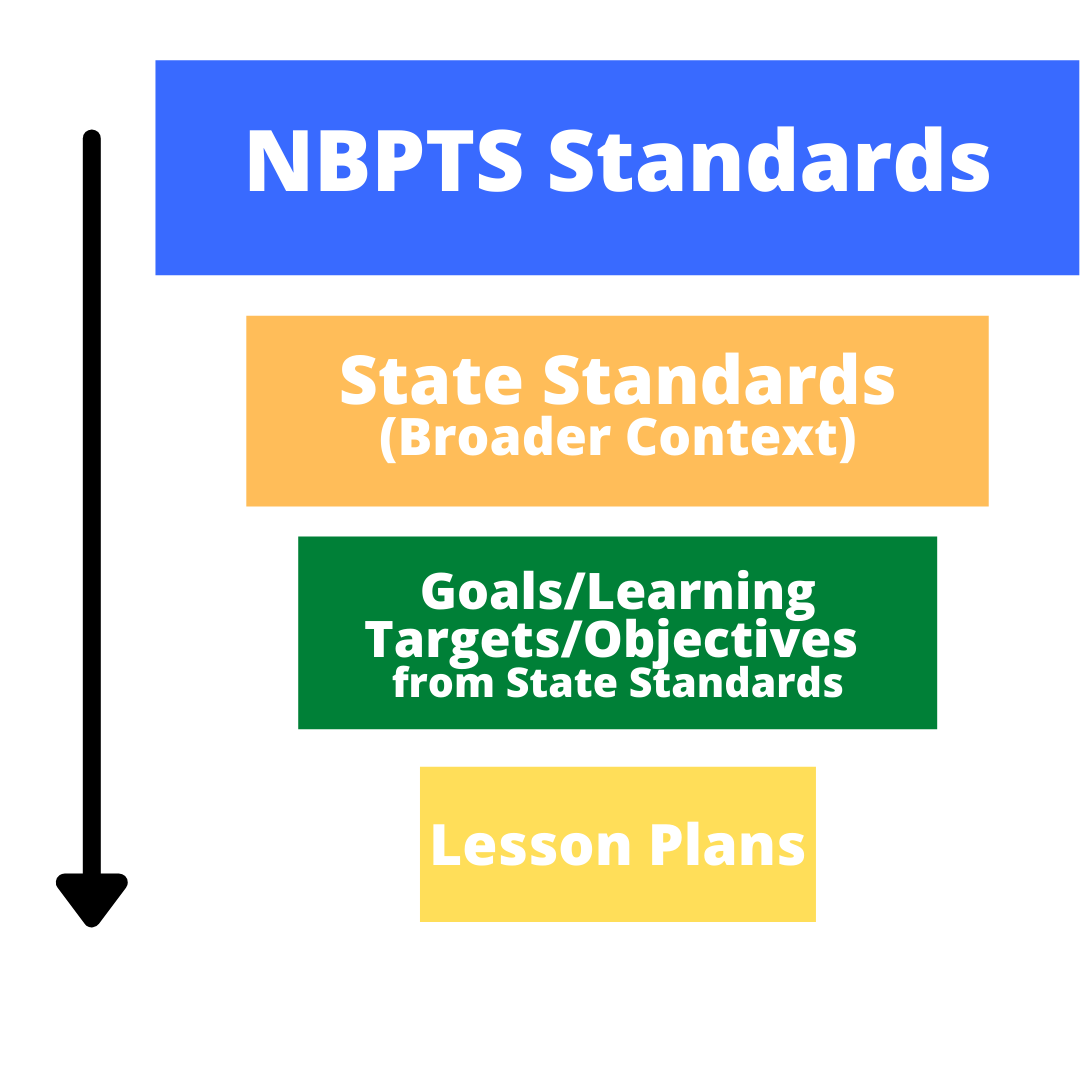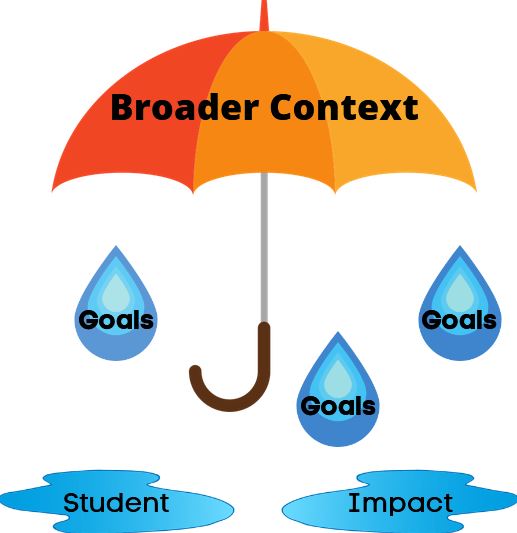
Broader Context in Teaching: How does it align with student impact and my goals?
Jul 03, 2021Broader Context in Teaching
The broader context in teaching refers simply to the bigger idea or overarching understanding that you have used within your planning of this lesson. The broader context, by definition is generally so large that it combines many goals over a long period of time for students to begin to internalize it.
But what can the broader context mean in your lesson plan template?
Think about it as your big idea (the umbrella) of everything under it (goals - seen as raindrops in the image below) and together planning from a broader perspective into a more narrow, measurable focus students will result in large puddles of learning (see the graphic below) for the students in your classroom.
Broader Context and NBPTS
For the sake of the NBPTS Maintenance of Certification process, you aren’t expected to prove that students meet the broader context for learning in examples. Instead, the assessor is looking for evidence that you are able to plan with the larger picture in mind.
Question #2 in Component 2 of the Maintenance of Certification Process asks: For the featured lesson, what were your goals, and how did they fit into the broader context of learning for these students?
Question #6 in Component 2 of the Maintenance of Certification Process asks: Explain the impact of your teaching on student learning. Cite specific examples from the video recording and identify what they illustrate.

The example below from my EC-Gen Standard IV (Listening & Speaking) standards and my state’s 2nd grade ELA Communication standards should serve as a visual to help you see how to think about creating a lesson plan format with the standards, broader context, and goals in mind.
South Carolina ELA Standards for 2nd Grade (Communication in Literacy)
Standard 1: Interact with others to explore ideas and concepts, communicate meaning, and develop logical interpretations through collaborative conversations; build upon the ideas of others to clearly express one’s own views while respecting diverse perspectives.
Goals/Targets/Objectives
- 1.1 Explore and create meaning through conversation, drama, questioning, and story-telling.
- 1.2 Apply the skills of taking turns, listening to others, and speaking clearly.
- 1.3 Apply verbal and nonverbal techniques including volume and tone, eye contact, facial expressions, and posture.
- 1.4 Participate in shared conversations with varied partners about focused grade-level topics and texts in small and large groups.
- 1.5 Explain personal ideas and build on the ideas of others by responding and relating to comments made in multiple exchanges.
NBPTS EC Generalist Certificate Specific Content Standards (Listening & Speaking)
Accomplished early childhood teachers are knowledgeable about distinct purposes for listening, such as informational, critical, appreciative, relational, and discriminative. They provide experiences that allow young children to listen for all these purposes, and they help children develop listening strategies to match each purpose. For example, interactive listening activities such as call-and-response foster question-and-answer interactions.
Accomplished teachers provide children with opportunities to participate in rich and varied experiences with spoken language. They engage children in meaningful conversations. They retell what they have seen and restate what they have heard, and they encourage children to do the same.
They provide activities and materials that promote children’s conversations with peers and adults, both one-on-one and in groups. They encourage children to discuss stories, the things they are learning in school, and their own experiences.
Accomplished teachers are constantly working to expand and enrich children’s vocabulary. They support children’s presentation of information in clear and well-structured ways, model for children how to adjust their speech and language depending on their audience and purpose, and provide an environment in which children feel safe communicating their thoughts.
Accomplished early childhood teachers are well-versed in the literature that examines the connection between oral language development and the acquisition of reading and writing skills, both for native English speakers and for those learning English as a new language.
Accomplished early childhood teachers accept and value young children’s unique modes of expression and distinctive dialects as they guide them toward conventional speaking. Teachers recognize that mastering the conventions of formal language is one key to children’s future success.



